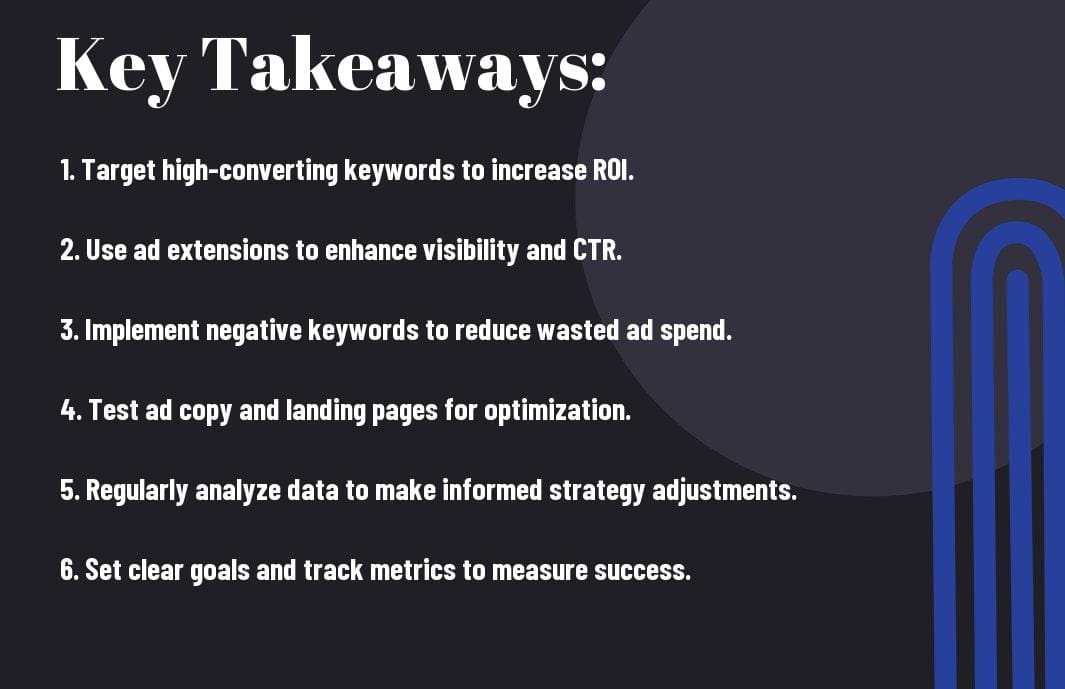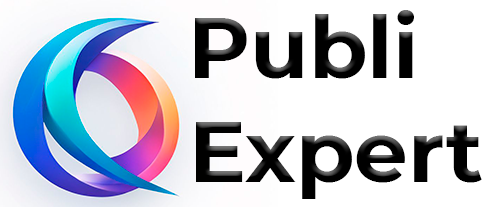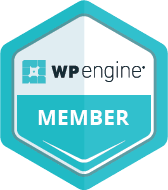Over recent years, Pay-Per-Click (PPC) advertising has emerged as a powerful tool for businesses looking to increase their online visibility and drive targeted traffic to their websites. However, without a well-thought-out strategy in place, businesses may end up wasting valuable resources and fail to see a significant return on investment. In this blog post, we will research into the imperative strategies and tips that can help businesses maximize their ROI with PPC advertising campaigns.
Key Takeaways:
- Understanding Your Audience: It is crucial to define your target audience and create relevant ad copy that speaks to their needs and preferences.
- Keywords Optimization: Conduct thorough keyword research to identify high-performing keywords and continuously optimize your PPC campaigns based on the data to maximize ROI.
- A/B Testing: Implement A/B testing strategies to compare different elements of your ads such as headlines, CTAs, and images, to determine what resonates best with your audience and drives higher conversion rates.

Fundamentals of PPC Campaigns
Some businesses turn to pay-per-click (PPC) advertising to drive targeted traffic to their websites and boost conversion rates. This form of digital marketing allows advertisers to bid on specific keywords to have their clickable ads appear in search engine results. Understanding the basics of a PPC campaign is crucial to maximizing returns on investment.
Key Components of a PPC Campaign
The success of a PPC campaign hinges on several key components, including keyword research, ad creation, ad targeting, and bid management. Keyword research involves identifying the terms and phrases that potential customers are likely to use when searching for products or services. Crafting compelling ad copy and headlines is vital to attracting clicks, and targeting the right audience through demographics, location, and device can further enhance campaign performance. Effective bid management ensures that ads are displayed prominently without overspending.
Setting Realistic Goals and Budgets
To achieve a positive return on investment with PPC advertising, it is crucial to set realistic goals and budgets. Setting clear objectives such as increasing website traffic, generating leads, or driving sales will help focus the campaign strategy. Establishing a budget that aligns with these goals and allows for testing and optimization is key to long-term success. By monitoring performance metrics such as click-through rates, conversion rates, and cost-per-acquisition, advertisers can adjust their strategies to improve outcomes.
For instance, constantly reassessing the effectiveness of keywords and ad copy can help refine targeting and messaging for better results. It’s important to stay informed about industry trends and competitor strategies to stay ahead in the ever-evolving digital landscape. By continuously optimizing campaigns based on data-driven insights, businesses can maximize their ROI and stay competitive in the online marketplace.
Keyword Research and Selection
Keep Maximizing ROI: Understanding the Impact of PPC … as your guiding principle when submerging into the world of pay-per-click advertising. One of the crucial steps in creating a successful PPC campaign is thorough keyword research and selection. By understanding the importance of keywords, you can optimize your ad campaigns to reach the right audience and drive maximum ROI.
Tools and Techniques for Effective Keyword Research
Techniques for keyword research involve utilizing a variety of tools such as Google Keyword Planner, SEMrush, and Ahrefs. These tools help you identify relevant keywords, analyze search volumes, and assess keyword competitiveness. By leveraging these tools, you can uncover valuable insights to inform your PPC strategy and target the most lucrative keywords for your business.
Strategies for Choosing the Right Keywords
Keyword selection is a critical aspect of PPC advertising. When choosing keywords, consider factors such as relevance, search volume, competition, and user intent. Aim to target long-tail keywords that are specific to your business niche and have lower competition. Additionally, incorporate negative keywords to refine your targeting and ensure your ads are shown to the most relevant audience.
Plus, regularly monitor and adjust your keyword strategy based on performance data to continually optimize your PPC campaigns. By staying informed about industry trends and consumer behavior, you can adapt your keyword selection to maximize results and drive a higher return on investment.
Crafting High-Converting Ad Copy
After setting up your pay-per-click campaigns, the next crucial step is to craft high-converting ad copy that will entice your audience to click and take action. This is where the magic happens in PPC advertising, as compelling ad copy can significantly impact your return on investment (ROI).
Principles of Persuasive Ad Copywriting
Principles of persuasive ad copywriting involve understanding your target audience, highlighting unique selling propositions, creating a sense of urgency, and using clear calls-to-action. By addressing pain points, offering solutions, and emphasizing benefits, you can create ad copy that resonates with your audience and compels them to click through to your landing page.
Split Testing Ad Variations for Better Performance
Testing different ad variations is imperative for optimizing the performance of your PPC campaigns. By conducting split tests, you can compare different ad elements such as headlines, copy, imagery, and calls-to-action to determine which combinations drive the best results. This iterative process can help you uncover what resonates most with your audience and improve your click-through rates and conversion rates.
For instance, you can test two variations of the same ad, one with a generic headline and the other with a specific benefit-driven headline. By analyzing the performance data, you can identify which version drives more clicks and conversions. Continuously testing and refining your ad copy can lead to significant improvements in your PPC campaigns’ effectiveness and ultimately maximize your ROI.
Landing Page Optimization
Importance of Relevant, High-Quality Landing Pages
Not all landing pages are created equal. In the world of pay-per-click advertising, the significance of having relevant and high-quality landing pages cannot be overstated. Your landing page is the first impression your potential customers will have after clicking on your ad. It is crucial that the landing page aligns seamlessly with the ad content to ensure a smooth and consistent user experience.
Best Practices for Landing Page Design and Content
With so much riding on the effectiveness of your landing pages, it’s crucial to follow best practices for design and content. Ensure that your landing page is clear, concise, and focused on the specific product or service being advertised. Use compelling headlines, relevant images, and a strong call-to-action to guide users towards the desired goal, whether that’s making a purchase or filling out a form.
On top of that, optimize your landing page for mobile devices as a significant portion of internet traffic comes from mobile users. Make sure your page loads quickly and is easy to navigate on smaller screens to improve user experience and increase conversions.
Bidding Strategies and Budget Allocation
Overview of Bidding Strategies
Many pay-per-click (PPC) advertising platforms offer various bidding strategies to help advertisers maximize their return on investment (ROI). These strategies include manual bidding, automated bidding, target cost-per-acquisition (CPA), and enhanced cost-per-click (ECPC). Each strategy has its own advantages and potential drawbacks, so it’s important to carefully consider which one aligns best with your advertising goals.
Allocating Your Budget for Maximum Efficiency
Any successful PPC campaign requires a well-thought-out budget allocation to ensure that your advertising dollars are being spent effectively. This involves determining how much to spend on each campaign, ad group, and keyword to maximize your reach and conversions while staying within your budget constraints.
Budget allocation should be based on performance data, competitor analysis, and seasonality trends to optimize your advertising efforts.
Analytics and Performance Tracking
Setting Up Tracking for Insightful Data Analysis
To ensure the success of your pay-per-click (PPC) advertising campaigns, setting up tracking mechanisms is crucial. By implementing tools like Google Analytics or conversion tracking pixels, you can gather valuable insights into the performance of your ads. Tracking clicks, conversions, bounce rates, and other key metrics allows you to analyze the effectiveness of your campaigns and make data-driven decisions to optimize your ROI.
Interpreting Analytics to Refine PPC Campaigns
Performance tracking goes hand-in-hand with interpreting analytics to fine-tune your PPC campaigns. By examining metrics such as click-through rates, conversion rates, and cost per conversion, you can gain a deeper understanding of what strategies are working and where improvements are needed. Refining your campaigns based on this data can help you save money by focusing your budget on high-performing keywords, ad copy, and target demographics.
Interpreting analytics is a continual process that requires monitoring and adjusting your strategies in real-time. By staying proactive in your data analysis, you can stay ahead of the competition and maximize your ROI with targeted PPC campaigns.
Ongoing Optimization and Scaling
Once again, we probe into the crucial aspect of ongoing optimization and scaling in your Pay-Per-Click (PPC) advertising strategy. Continuous improvement and expansion are key to maximizing your Return on Investment (ROI) and keeping your campaigns competitive in the digital landscape.
Techniques for Iterative Improvement
On the path to achieving the best results with your PPC campaigns, it is imperative to implement techniques for iterative improvement. This involves regularly analyzing performance data, testing new ad copy and visuals, refining keyword selection, and optimizing landing pages. By constantly monitoring and tweaking your campaigns, you can identify what resonates with your target audience and adjust your strategies accordingly to enhance performance and drive conversions.
Approaches to Scaling Successful PPC Campaigns
One approach to scaling successful PPC campaigns is to replicate and expand what is already working well. By identifying high-performing keywords, ad groups, and demographics, you can create similar campaigns to capitalize on their success. Additionally, consider increasing your budget gradually for top-performing campaigns to reach a wider audience and generate more conversions.
Scaling successful PPC campaigns requires a careful balance of experimentation and data-driven decision-making. It is imperative to constantly monitor performance metrics and adjust your strategies accordingly to avoid overspending or targeting the wrong audience. By gradually increasing your budget and expanding successful campaigns, you can achieve sustained growth and maximize your ROI over time.
Leveraging Automation and AI in PPC
For businesses looking to maximize their return on investment (ROI) with pay-per-click (PPC) advertising, leveraging automation and artificial intelligence (AI) is crucial. These advanced technologies can help streamline PPC campaigns, optimize ad performance, and ultimately drive better results.
How Automation Can Improve Efficiency
Efficiency is the key to successful PPC campaigns, and automation can greatly improve this aspect. By automating routine tasks such as keyword bidding, ad scheduling, and performance tracking, marketers can save time and ensure optimal campaign performance. Automation tools can also help identify trends and patterns in data, allowing for quicker adjustments and more informed decision-making.
The Role of AI in Enhancing PPC Performance
With AI’s capabilities in analyzing vast amounts of data at incredible speeds, it plays a crucial role in enhancing PPC performance. AI algorithms can predict trends, optimize bids in real time, and even personalize ad content based on user behavior. By leveraging AI, marketers can stay ahead of the competition and reach their target audience more effectively.
Role AI can also help in detecting fraudulent clicks and optimizing budget allocation, further maximizing the ROI of PPC campaigns. By harnessing the power of AI, businesses can unlock new opportunities for growth and efficiency in their advertising strategies.
Compliance and Ad Policy Considerations
All PPC Advertising: Maximizing ROI with Pay-Per-Click campaigns must adhere to the strict guidelines set forth by advertising platforms to ensure compliance and avoid penalties. Staying aware of the policies and regulations is crucial for the success of any PPC campaign.
Staying Compliant with Platform Rules
Considerations such as ad relevance, landing page quality, and ad targeting are crucial for maintaining compliance with platform rules. Ensuring that your ads are relevant to the keywords and audience you are targeting is crucial in maintaining a high quality score and avoiding being flagged by platforms for misleading content. Additionally, ensuring that your landing pages provide relevant and valuable content to users is crucial in meeting platform standards.
Navigating the Complex Landscape of Ad Regulations
Compliance with ad regulations goes beyond platform rules and extends to legal requirements set by various authorities. Understanding the nuances of these regulations can be challenging, as they vary by industry, location, and target audience. It is crucial to stay informed about changes in regulations to avoid costly penalties and legal repercussions.
Advanced Tactics and Innovative Approaches
Keep ahead of the competition by implementing advanced pay-per-click advertising strategies that focus on maximizing return on investment. In this chapter, we will explore some cutting-edge tactics and innovative approaches that can take your PPC campaigns to the next level.
Exploring Remarketing and Audience Targeting
An effective way to boost ROI in your PPC campaigns is through remarketing and audience targeting. Remarketing allows you to target previous visitors to your website with tailored ads as they browse other sites on the web. Audience targeting focuses on reaching specific demographics or interest groups to ensure that your ads are seen by the right people at the right time.
| Remarketing | Audience Targeting |
|---|---|
| Targets users who have already shown interest in your brand | Allows for precise targeting based on demographics and interests |
| Increases brand visibility and recall | Helps improve ad relevance and click-through rates |
Utilizing Cross-Channel PPC Strategies
The key to a successful PPC campaign is not only focusing on one platform but also utilizing cross-channel strategies. Cross-channel PPC involves integrating your advertising efforts across multiple platforms such as Google Ads, Facebook, Instagram, and more. By having a presence on various channels, you can reach a wider audience and reinforce your messaging to increase conversion rates.
Tactics: Implementing cross-channel PPC strategies can be complex but highly rewarding. By leveraging the strengths of each platform and creating cohesive messaging across channels, you can maximize your reach and engagement. However, it is crucial to carefully monitor and optimize your campaigns to ensure that you are allocating your budget effectively and targeting the right audience.
By incorporating these advanced tactics and innovative approaches into your PPC advertising strategy, you can enhance your overall performance and drive better results. Stay proactive in testing new methods and staying updated on industry trends to stay ahead of the curve.
Managing Multiple Campaigns and Vendors
After setting up multiple pay-per-click (PPC) campaigns across various platforms, it is crucial to implement effective strategies to manage them efficiently. Strategies for Effective Multi-Campaign Management involve staying organized by creating a comprehensive spreadsheet detailing each campaign’s performance metrics, budget allocations, target keywords, and ad copies. Regularly monitoring and analyzing this data will enable you to make data-driven decisions to optimize campaigns for better ROI.
Additionally, consider implementing bid management tools to automate the process of adjusting bids based on performance metrics. By setting up automated rules and alerts, you can ensure that your campaigns are always optimized for maximum effectiveness. Furthermore, scheduling regular reviews and optimizations across all campaigns will help you stay ahead of the competition and continuously improve your PPC efforts.
Working with Third-Party Vendors and Tools
On the journey to maximizing ROI with PPC advertising, working with third-party vendors and utilizing tools can provide valuable insights and resources to enhance your campaigns. Management of third-party tools can streamline tasks such as keyword research, ad creation, and performance tracking. These tools can help you identify new opportunities, optimize campaigns faster, and stay competitive in the ever-evolving landscape of digital advertising.
Third-party vendors can also offer specialized expertise and services, such as campaign management, ad design, and strategy development. Collaborating with reputable vendors can bring a fresh perspective to your campaigns, leading to increased efficiency and better results. However, it is vital to thoroughly vet vendors and tools to ensure they align with your goals and deliver the promised value.
Industry Trends and Future Outlook
Keeping Up-to-Date With PPC Innovations
Trends in pay-per-click (PPC) advertising are constantly evolving, influenced by changes in technology, consumer behavior, and search engine algorithms. Staying ahead of the curve is crucial for maximizing your ROI in PPC campaigns. Keeping up with the latest PPC innovations not only helps you maintain a competitive edge but also ensures that you are adapting to the ever-changing landscape of online advertising.
Predicting Developments in Pay-Per-Click Advertising
To predict the future of PPC advertising, it’s vital to look at the current trends and anticipate where they might lead. With advancements in machine learning and artificial intelligence, the future of PPC is likely to be more automated and data-driven. Adapting to these changes early on can give you a significant advantage in optimizing your campaigns for better performance and ROI.
With the increasing emphasis on personalization and relevance in online advertising, leveraging dynamic ads and audience targeting will become even more critical. As privacy regulations tighten, maintaining transparency and compliance in your PPC strategies will be crucial to building trust with your audience and ensuring the long-term success of your campaigns.
Summing up
As a reminder, utilizing pay-per-click advertising strategies is a powerful way to maximize return on investment for your business. By carefully planning your campaigns, targeting the right audience, monitoring performance closely, and optimizing based on data, you can drive significant results and increase your ROI effectively.
Remember to stay up-to-date with the latest trends and best practices in the pay-per-click advertising landscape to ensure that your strategies remain effective and competitive. With dedication, strategic thinking, and a willingness to adapt, you can achieve impressive ROI results and grow your business through pay-per-click advertising.
FAQ
Q: What is Pay-Per-Click (PPC) Advertising?
A: Pay-Per-Click (PPC) advertising is a digital marketing strategy where advertisers pay a fee each time their ad is clicked. It is a way of buying visits to your site, rather than attempting to “earn” those visits organically.
Q: How can PPC Advertising help maximize ROI?
A: PPC Advertising can help maximize ROI by targeting the right audience, optimizing ad copy and landing pages, and continuously analyzing and adjusting campaigns to improve performance.
Q: What are some key benefits of using PPC Advertising strategies?
A: Some key benefits of using PPC Advertising strategies include quick results, precise targeting options, measurable ROI, and the ability to control budget and spending.
Q: What platforms can PPC Advertising be used on?
A: PPC Advertising can be used on various platforms including Google Ads, Bing Ads, Facebook Ads, LinkedIn Ads, Twitter Ads, and more.
Q: How should I determine the right keywords for my PPC campaigns?
A: To determine the right keywords for your PPC campaigns, you should conduct keyword research using tools like Google Keyword Planner, analyze competitor keywords, and select relevant, high-performing keywords for your industry.
Q: What are some best practices for optimizing PPC campaigns to maximize ROI?
A: Some best practices for optimizing PPC campaigns include creating compelling ad copy, using ad extensions, testing different ad variations, optimizing landing pages, and tracking and analyzing campaign performance regularly.
Q: How important is monitoring and analyzing data in PPC Advertising?
A: Monitoring and analyzing data in PPC Advertising is crucial for maximizing ROI. It helps identify what is working well, what needs improvement, and provides insights for making data-driven decisions to optimize campaigns and drive better results.




